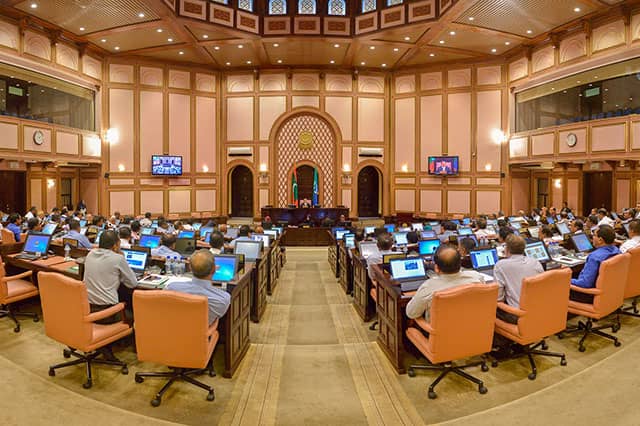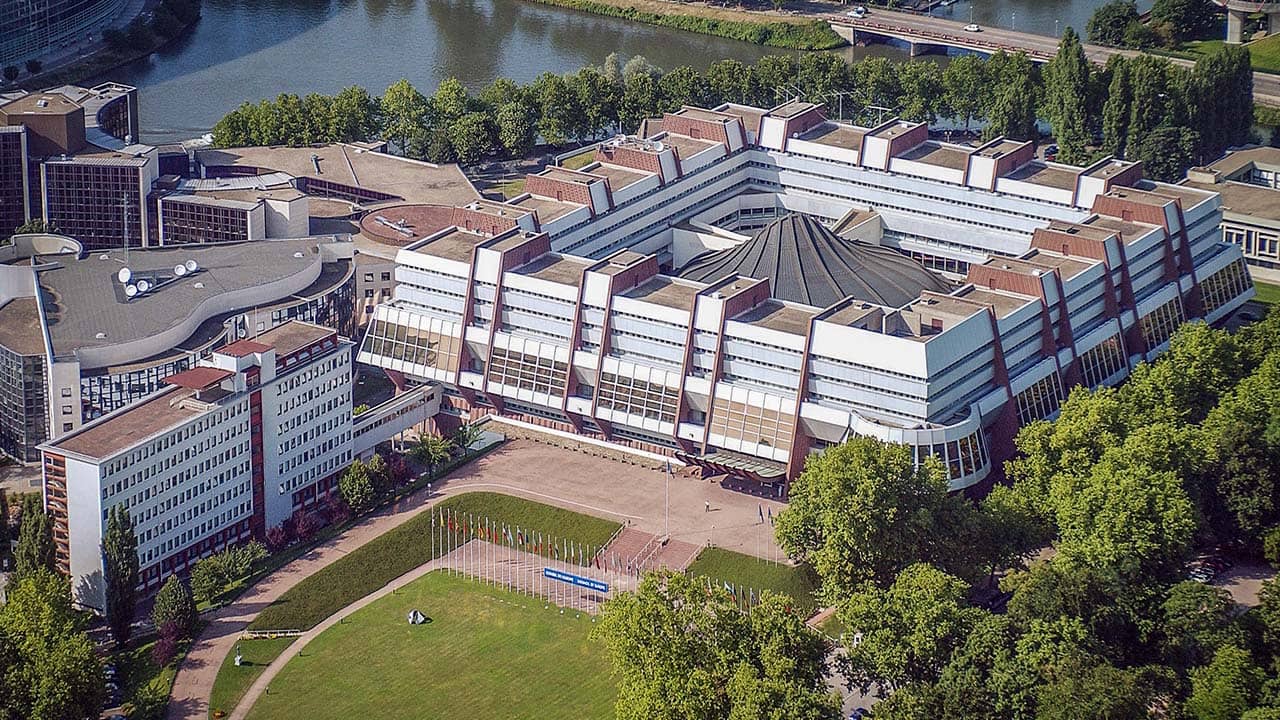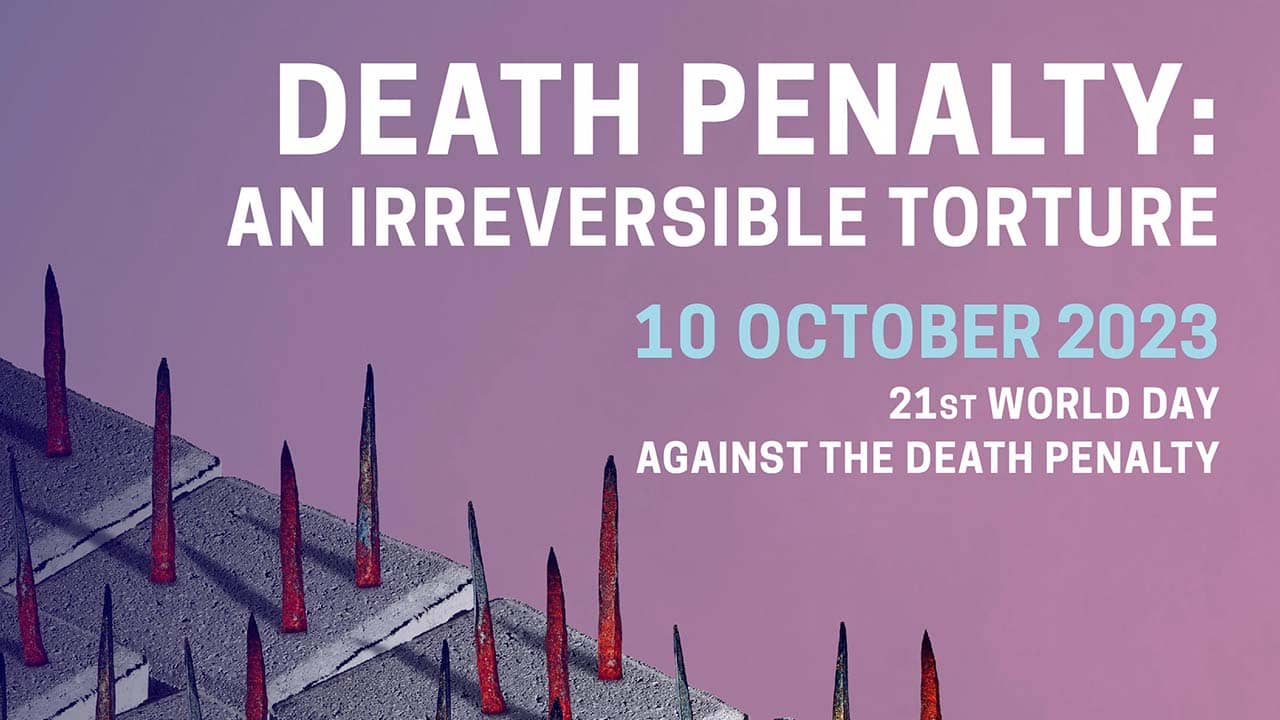
Parliamentarians for Global Action (PGA) is deeply concerned at reports of severe political repression in the Maldives, including serious violations of the constitutional and democratic processes and the arrest of several opposition Members of Parliament (MPs).
In July 2017, 45 MPs – opposition MPs together with majority MPs who defected – filed a no-confidence motion against the Speaker of Parliament, Hon. Abdulla Maseeh, MP. The motion accused the Speaker of several offences, including his disregard for the Rule of Law and ignoring allegations of corruption and human rights abuses by the government. Under the Maldivian Constitution, the Speaker of Parliament can be removed if 42 or more MPs vote for his impeachment.
The Elections Commission immediately announced that four of the defecting MPs had lost their seats in Parliament – a decision that was later found unconstitutional by the Supreme Court, which held that the ruling could not apply retroactively. One of these MPs, Hon. Faris Maumoon, was jailed ahead of the vote, while the three others were jailed later. Nine additional opposition legislators were charged with “criminal trespassing” as they had entered the premises of the Parliament, despite the presence of the army. Two of the MPs have had their passports seized. Hon. Qasim Ibrahim, MP, leader of the Jumhooree party, is under trial for “attempted bribery of lawmakers,” as he called on government MPs to join the opposition during a speech.
In order to prevent the vote on the motion, which was scheduled for 24 July, the government also ordered the army to close down the Parliament, thus preventing opposition MPs from entering. Soldiers and police officers entered Parliament and removed MPs from the premises, injuring some of them. The opposition defied such decisions and demonstrations turned violent, with riot police cracking down on the gatherings with pepper spray and tear gas. The Minister of Defence was later heard on a leaked audio encouraging soldiers to physically assault opposition parliamentarians. Since then, Parliament remains closed down “due to security arrangements” and no session has been held.
In the last few years, President Abdulla Yameen has managed to arrest or push to exile most of his political opponents, ensuring he would not be challenged in the upcoming 2018 presidential election. Former President and current advisor to the Maldives United Opposition, Mohamed Nasheed, has been living as a political refugee in London since January 2016. He had been arrested and convicted to 13 years of imprisonment over terrorism charges in 2015, despite the United Nations Working Group on Arbitrary Detention finding that he did not receive a fair trial. Former Vice-President Adeeb was convicted in June 2016 for a plot to assassinate the President. Another opposition leader, Sheikh Imran Abdulla, was sentenced to 12 years of imprisonment for terrorism related charges.
This crackdown on the opposition is part of a wider context of excessive limitations to the human rights of the Maldivian people. The new defamation law adopted in 2016 allows the authorities to prosecute critics of the government. The press is routinely harassed through lawsuits and bans: in August 2014, Ahmed Rilwan, a reporter, was forcibly disappeared, while a blogger, Yameen Rasheed, was murdered at his doorstep in May 2017.
In an effort to distract attention from the political crisis, the government of the Maldives has also announced its intention to proceed with the execution of 3 death row inmates, after more than 60 years of a moratorium on the death penalty. Numerous NGOs, as well as the United Nations Special Rapporteur on extrajudicial, summary or arbitrary executions, have criticized the move and called on the Maldives not to carry out any execution.
The government had already announced its intention to reinstate capital punishment in 2014 and proceeded with legislative reforms to that effect. According to Amnesty International, they are currently 20 people on death row in the Maldives, and at least 5 of them were convicted for offences committed before they were 18.
PGA, the largest NGO network of individual Lawmakers from 142 countries, calls on the Maldivian authorities and the International Community to guarantee that the rights of every individual is guaranteed, pursuant to internationally-recognized human rights and the Maldivian Constitution – in particular its Articles 21, 27, 28, 30, 32, 42, and 45 to 58. PGA also recalls that the Maldivian Constitution provides that the “Speaker or the Deputy Speaker shall vacate his office: […] if the People’s Majlis at any time so resolve” (article 82(d)).
PGA’s Campaign for the Abolition of the Death Penalty supports, enhances and maximizes the impact of individual initiatives by parliamentarians to further the abolition of capital punishment, as well as leads targeted campaigns in selected countries to ensure concrete advancements on abolition processes.



